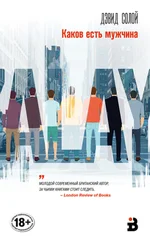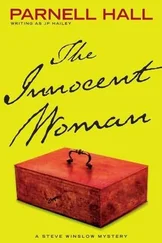‘For Agata, I suppose.’
‘Actually she says she prefers it if I don’t, but I don’t believe her.’
There are a dozen people in the large living room of the eighth-floor flat. Agata, of course, heavily made up, serving drinks. Andrey, Ivan’s older son, and his pregnant wife. A man with a little white beard, wearing a beige cardigan – Spiridon, one of Ivan’s subordinates on the paper. He hovers nervously, not saying much. Some other friends of Ivan’s – men and women in smart clothes, smelling of scent – whom Aleksandr does not know. It is unusual for him to be included in these sorts of events.
In startlingly lifelike colour (some people ooh and ah – Ivan looks momentarily pleased) the teams file out onto the green pitch – the West Germans in white, the Soviets in red – and the national anthems are played. Khurtsilava and Beckenbauer shake hands in the centre circle. The teams take up their positions. In the warm living room Aleksandr is shivering slightly. It seems to him that he has never wanted anything as much as he wants the Soviet Union to win this match. The Austrian referee blows his whistle. It starts.
The tension immediately takes on a new quality. Smooth, sickening, panicky. For the first few minutes every touch seems loaded with terrifying significance. Every incipient attack is met with shouts of joy and aggression if it is the red shirts surging forward, fumbling terror if it is the Germans. After a while, however, a sort of enervated lethargy sets in. Aleksandr finds himself oddly uninterested in the minutiae of the match, the indecisive midfield play. For a moment, he even looks away from the screen – through the blue fug of cigarette smoke everyone’s eyes are on the television set. Even the women, standing in the low arch through to the shadowy hall. It is quiet, except for the measured, nervous voice of the commentator, and the occasional scrape of someone lighting a cigarette. Then Müller scores. From the television, there is a long explosion of white noise. It is the only sound in the smoke-filled living room. Everyone is staring at the screen in shock. The ball is in the net. White-shirted Germans are sprinting, smiling, sprawling on the turf. It’s as though someone’s died.
Within moments of the second half starting – some people have not even retaken their seats – they score a second. This time, as Wimmer is mobbed by his ecstatic teammates, the ensuing silence lasts much longer – is in fact still more or less in place when, six minutes later, Müller surges through, and with an extraordinary shot extinguishes whatever unspoken hope still lingered in the sweltering living room. They watch what is left with silent loathing. Kick-off seems a long time ago, seems to have taken place in another world. It was another world – a world of wonderful possibility, that is now a world of sour outcome. The Soviet players are struggling to hold the strutting Germans. They have stopped tackling. They look shocked. The three shrill notes of the final whistle sound, and the winners – shaggy as hippies, skinny as drug addicts – fling their fists in the air. Rudakov sits slouched in front of his goal. Khurtsilava has tears in his eyes. When the King of Belgium hands Beckenbauer the silver trophy, Ivan turns off the tele vision. The last image they see on the fading screen is Beckenbauer hoisting the trophy over his head. He is not even smiling.
Outside, night has fallen on Sverdlovsk. Some people leave immediately, as if the loss existed only there, in Ivan’s flat. The others, understanding that it is not so easily escaped, turn to drink. It is past midnight when Ivan drives Aleksandr home. Drunk, he steers slowly through the quiet streets. Aleksandr is untalkative. ‘You okay?’ Ivan says.
‘I’m just thinking about something.’
‘The football?’
Aleksandr shakes his head. Then, a moment later, he murmurs, ‘Metelyev Log.’
‘What?’
‘Metelyev Log.’
‘What’s that?’ Ivan takes a hand off the plasticated wheel to fish his cigarettes from his pocket and the Lada wanders in the road. ‘There was a strike or something,’ he says. ‘A railway strike. Was that it?’
‘No, that wasn’t it.’
They have left the tarmacked streets and are probing the mothy darkness of suburban tracks.
‘There was a man called Lozovsky,’ Aleksandr says. ‘He was a sort of doctor.’
‘Was he?’
‘Yes. You wrote a piece on him.’
‘Did I?’
‘Two, in fact.’
Leaning forward with a cigarette in his mouth, peering through the windscreen, the speckle of impacted insects, Ivan says, ‘Do you know how many thousands of pieces I’ve written?’
‘You’ve forgotten?’
There is a long silence. Then Ivan says, ‘Sasha, what’s the point of talking about these things? Nobody wants to hear about them now …’
‘ You don’t …’
‘No, I don’t. I’m surprised you do …’
‘Surprised? Why are you surprised?’
Ivan sighs. ‘I don’t know. Forget it. We’re here.’
IVAN, YOU SOMETIMES seem to have no memory at all. So let me tell you: You were not always like you are now. Once you were known for writing things that got you into trouble. The story of the ‘strike’, for instance. You mentioned it last night. The story of the ‘strike’. I took you out to lunch – in those days I took you to lunch – and you told me about it.
It was just after my first visit to Metelyev Log. I was stranded there for more than a week. A mudslide somewhere in the hills had stopped the trains. When I finally got home, Irishka said you were looking for me. I went to see you on Sunday. You weren’t in. Katya opened the door. She was heavily pregnant with Shurik. Whenever I saw her, she talked and talked about you – how she was worried about you, how you were not eating enough, how you worked too hard, smoked too much, didn’t sleep properly. She spent her life worrying about you, Ivan. I asked her where you were, and she said you were working – on Sunday, she said, you had to write the paper for Monday. This wasn’t true, and she must have known it. You wrote Monday’s paper on Friday.
I took you out to lunch the next day. You were late, of course. You were wearing a jacket that was too big for you and an open-necked shirt with long collars. Your hair, parted in the middle, was plastered shinily to your head. You were smoking a Belomor. That was how you looked in those days. We ordered our lunch, and then I said, ‘So there’s something you want to tell me about?’
‘Yes,’ you said, ‘something I’m working on.’ That was what I had expected. In those days you often told me what you were working on. You took a piece of paper out of your pocket. ‘This,’ you said.
‘What is it?’
‘It’s a letter,’ you said, unhurriedly, salting your bread, ‘from the management committee of the Molotov railway to the oblispolkom, here in Sverdlovsk.’ It will probably surprise you to know that I still have it. The very letter. It says:
At present we are unable to pay any wages, as has been the case for several weeks. Workers cannot buy even a single kilogram of bread, and are coming to work hungry and declaring that they do not have the strength to work. Having been deprived of bread and food products, the dependants and children of workers are forced to starve, and the workers themselves are dividing up what little we can give them with their children and thereby driving themselves to emaciation. This failure to pay wages is now acquiring a political character. Non-appearance for work is becoming more widespread, and there have been instances of engine drivers refusing to take their locomotives out. For all these reasons, and in view of the vital strategic importance of the railway, we urge the immediate release of the emergency funds necessary to resolve this exceptionally difficult situation.
Читать дальше












